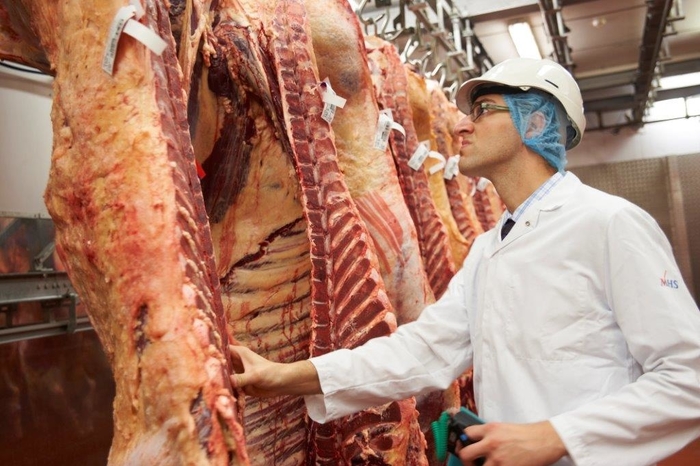The far-reaching impact of Brexit on personal and professional lives, public policy and trade is creating a perfect storm that could result in a veterinary capacity crisis for the UK after its departure from the EU, said the British Veterinary Association (BVA) President at the organisation’s annual London dinner on Tuesday (30 January).
Speaking to the Dinner’s 70 guests, including Parliamentary Under Secretary of State for Rural Affairs and Biosecurity Lord Gardiner of Kimble, BVA President John Fishwick said: “In trade alone, it’s been estimated that the volume of exports requiring veterinary certification could increase by as much as 325%. Depending on the outcome of Brexit negotiations … new veterinary certifications will need to be developed and supervised to ensure the continuation of smooth trade, which will require an increase in the number of specially trained Official Veterinarians to perform this role.”
Mr Fishwick highlighted that Brexit has brought into sharp relief the UK’s reliance on EU veterinary professionals. In food safety and hygiene alone, it is estimated 95% of Official Veterinarians (OVs) working in abattoirs are from overseas, with the large majority graduating in the EU.
The BVA President acknowledged the UK Government’s reassurances for non-British EU nationals currently living and working in the UK. However for some, he said, these have come too late: “Research by the RCVS has shown that nearly a third of vets and vet nurses whose nationality is non-UK European are considering a move out of the UK. To prevent an acute crisis in veterinary capacity, BVA is urging the Home Office to add veterinary surgeons to the Shortage Occupation List.”
BVA is working with Defra, the RCVS and Vet Schools Council on a strategic Veterinary Capability and Capacity Project to ensure the development of a flexible and skilled workforce that meets the UK’s needs for both the immediate and longer term future.
To emphasise the vital and varied roles fulfilled by vet-led teams today, BVA London Dinner guests – from parliament, government, the veterinary profession and other animal health and welfare organisations – were greeted by an exhibition of BVA members’ photographs, which had been exhibited in the House of CommonsUpper Waiting Hall at the start of the year.
During his speech Mr Fishwick outlined his Presidential theme of ‘Team vet: working together’. He said: “It is veterinary input and expertise that underpins the UK’s high standards of animal health, animal welfare and public health. We are rightly proud of these high standards … Yet these standards can only be maintained with a robust, sustainable veterinary workforce in place.”
The BVA President reflected on the public strength of feeling shown about animal sentience and welfare last November and on the number of occasions that he has heard the Environment Secretary speak on the continued need for high standards, saying: “Animal welfare, alongside high animal health standards, provides our trade with a unique selling point that should be maximised post-Brexit. It is for all of these reasons that we believe animal health and welfare should be considered ‘public goods’ in any future UK agricultural policy … since [this is exactly why] we have our global reputation for agricultural produce and high standards.”
Mr Fishwick shared with guests BVA’s campaigning on animal welfare and animal sentience, which called on the Government to enshrine in UK law the duty on the state to have due regard for animal welfare, as captured in the Article 13 of the EU’s Lisbon Treaty.
Mr Fishwick set out BVA’s other priorities for the coming year, including working towards an end to non-stun slaughter; rolling out mandatory CCTV in slaughterhouses across the UK; strengthening veterinary surveillance; and reducing antibiotic resistance. The BVA President highlighted the Association’s recently launched #BreedtoBreathe campaign, he explained: “Across the UK we know there is a growing welfare concern around the rise in popularity of brachycephalic breeds, with 9 out of 10 companion animal vets reporting that the number of flat-faced dogs being brought into their practice has greatly increased over the past three years.
“We can only make a success of this campaign, and improving animal health and welfare more widely, if vet-led teams work together, be that in clinical practice, public health, government services, academia or research.”


